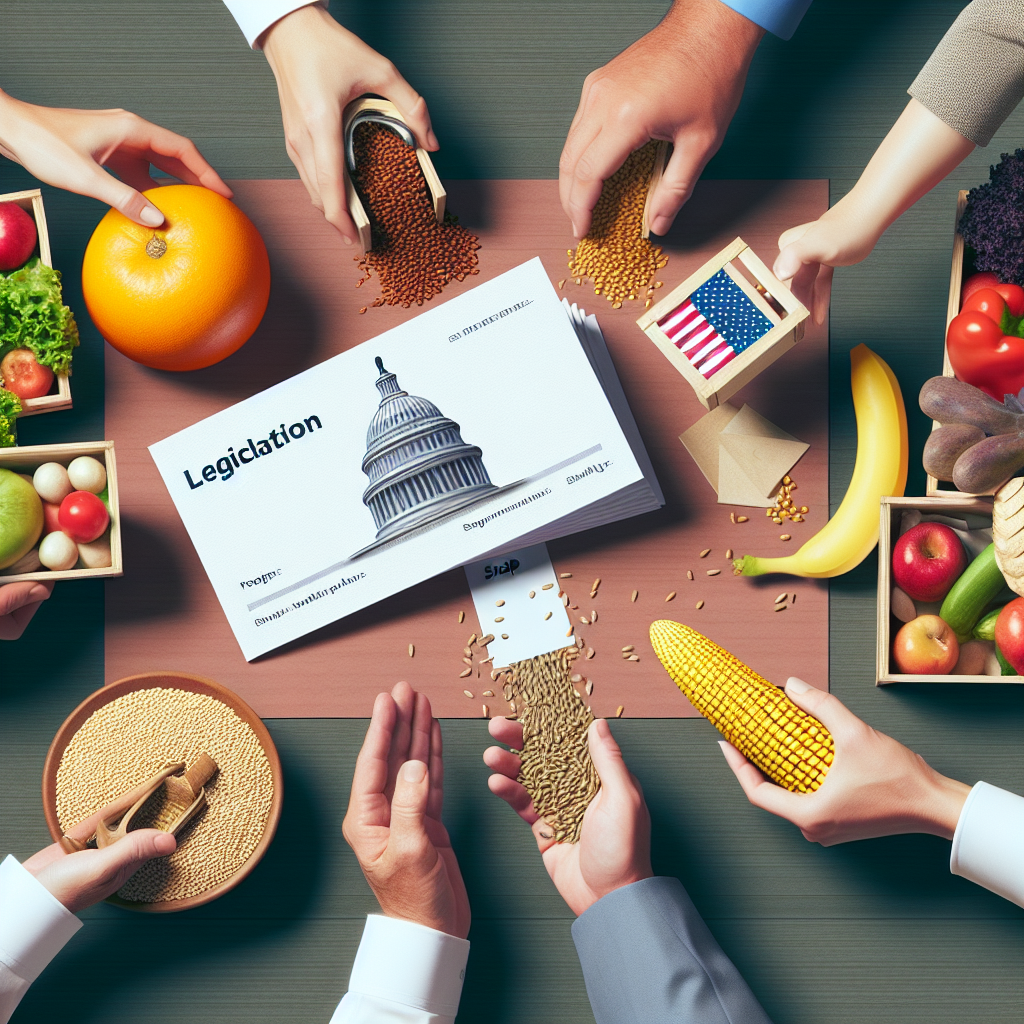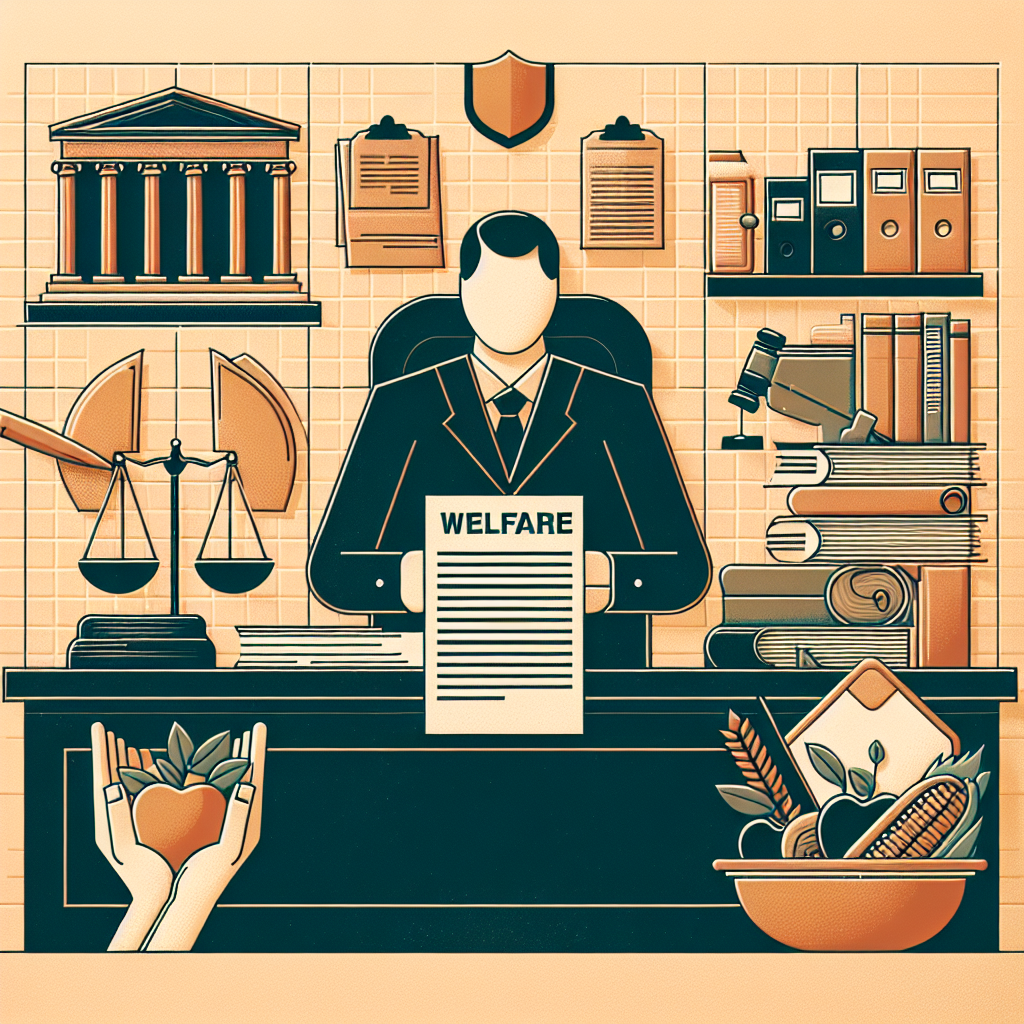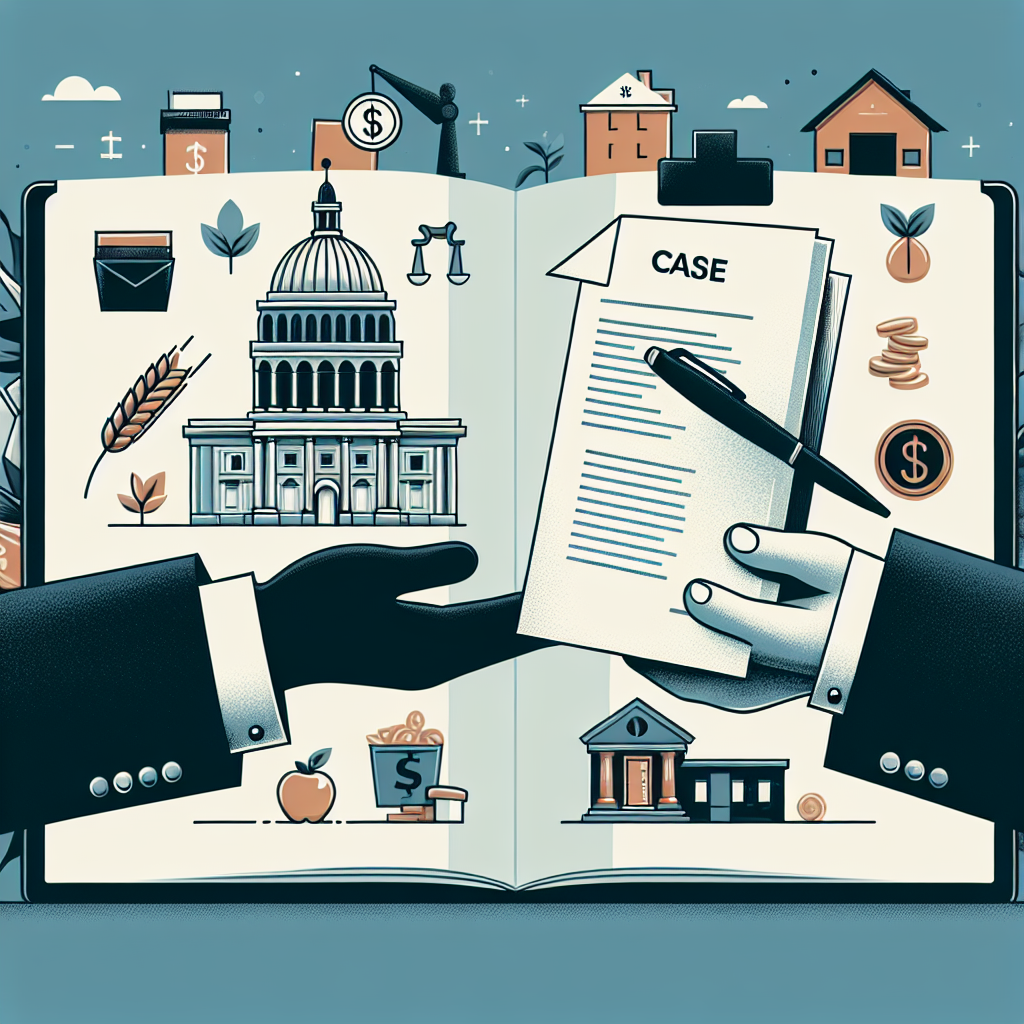The Trump administration has once again approached the Supreme Court, requesting intervention to block a federal court order mandating full funding for the Supplemental Nutrition Assistance Program (SNAP) for the month of November. This appeal comes in the wake of a government shutdown, which has prompted significant concern over the continuation of vital food assistance for millions of Americans. U.S. District Judge John J. McConnell, Jr. of Rhode Island issued a ruling that would require the government to ensure full SNAP benefits, a decision that has been met with resistance from the administration.
Background of the SNAP Funding Dispute
The conflict originates from a challenge posed by various nonprofits and cities against the Department of Agriculture’s announcement on October 24, which indicated a suspension of SNAP benefits for November due to the ongoing government shutdown. This decision has raised alarms among advocates who argue that a lapse in funding would disproportionately affect low-income families relying on food assistance. In response to this challenge, Judge McConnell ordered the government to fully fund the program by November 3 or provide partial funding using emergency resources by November 5, highlighting the urgency of the situation.
Details of the Court Orders
Judge McConnell’s initial order on November 1 aimed to ensure that Americans would not go hungry during the shutdown. However, dissatisfaction arose with the administration’s delays in implementing the necessary funding measures. In a subsequent order dated November 6, McConnell reiterated the need for full funding by November 7, emphasizing that compliance should focus on feeding Americans rather than merely shifting the burden of fund distribution to the states.
Administration’s Legal Arguments
In its legal brief submitted to the Supreme Court, the Trump administration, represented by U.S. Solicitor General John Sauer, argued that the court’s ruling injects the judicial branch into political processes better handled by Congress. Sauer expressed a strong belief that any lapse in SNAP funding is unfortunate, but insisted that the only way to resolve the crisis is for Congress to take action to reopen the government. This perspective underscores the administration’s stance that the judicial intervention is not appropriate in this scenario.
Implications of the Ruling
The ramifications of this legal battle extend beyond just SNAP funding. A ruling from the Supreme Court could set a precedent regarding the extent of judicial authority in matters of governmental funding during a shutdown. The administration’s appeal reflects a broader concern regarding the balance of power among the branches of government, particularly in times of crisis. As the situation develops, the outcome may significantly impact not only SNAP beneficiaries but also the future of governmental operations during shutdowns.
| Date | Event | Details |
|---|---|---|
| October 24 | Announcement of SNAP Suspension | The Department of Agriculture announces suspension of SNAP benefits due to government shutdown. |
| November 1 | Judge McConnell’s Initial Order | Judge orders full funding for SNAP by November 3 or partial funding by November 5. |
| November 6 | Judge’s Follow-Up Order | McConnell instructs the administration to fully fund SNAP benefits by November 7. |
As the Trump administration continues its efforts to halt the court’s order, the legal and social implications of their actions will be closely monitored. Advocates for low-income families are particularly concerned about the potential fallout from these developments, as the uncertainty surrounding SNAP funding could lead to food insecurity for vulnerable populations. The situation remains fluid, with significant attention focused on the upcoming decisions by the Supreme Court, which may ultimately determine the fate of SNAP funding during this critical period. For further information on the implications of this SNAP payments ruling, stay tuned as updates unfold.
In the backdrop of this legal battle, there are also broader concerns regarding the integrity of governmental operations during the shutdown. The Trump administration’s actions have invoked discussions about the role of the Department of Justice in overseeing such matters. The trump administration DOJ has faced scrutiny over its handling of various investigations, which adds another layer of complexity to the current situation.

The Trump administration is once again seeking intervention from the Supreme Court regarding a federal judge’s order that mandates full funding for the Supplemental Nutrition Assistance Program (SNAP) during the ongoing government shutdown. This legal battle arises from a ruling by U.S. District Judge John J. McConnell, Jr., which requires the government to ensure that SNAP benefits are fully funded for the month of November. The administration contends that this judicial directive unnecessarily entangles the courts in political processes designed to resolve the current impasse.
Details of the Legal Challenge
On Monday afternoon, U.S. Solicitor General John Sauer filed a brief with the Supreme Court, arguing that the situation surrounding SNAP funding is dire but must ultimately be addressed by Congress. He articulated that any lapse in SNAP funding is indeed tragic, yet the resolution to the crisis hinges on legislative action to reopen the government. The brief comes in response to a challenge initiated by various nonprofits and municipalities against the Department of Agriculture’s recent announcement, which indicated a suspension of SNAP benefits for November due to the shutdown. This announcement was made on October 24, leading to a flurry of legal responses aimed at ensuring that vulnerable populations continue to receive necessary food assistance.
Judge McConnell’s Orders
In his order dated November 1, Judge McConnell demanded that the government either fully fund SNAP benefits by November 3 or utilize emergency funds to provide partial benefits by November 5. The judge expressed frustration over the delays in implementing these directives, emphasizing that compliance should be measured by the ability to feed Americans rather than by shifting administrative responsibilities onto the states. This sentiment was reiterated in a subsequent order on November 6, where McConnell insisted that the Trump administration must fully fund SNAP benefits by November 7. The urgency of these orders reflects the critical need for food assistance during the ongoing government shutdown, which has left many families in precarious situations.
Administration’s Response and Next Steps
In response to McConnell’s orders, the Trump administration escalated the matter to the U.S. Court of Appeals for the 1st Circuit, seeking to pause the district court’s ruling. The administration argues that the judicial intervention is counterproductive and complicates efforts to resolve the shutdown. The Solicitor General pointed out that the only viable solution to the funding crisis is a legislative agreement to end the shutdown, which has significant implications for various federal programs, including SNAP. As the legal proceedings unfold, the administration remains steadfast in its position that any long-term resolution must come from Congress, rather than from judicial mandates.
Broader Implications of the SNAP Funding Crisis
The ongoing legal dispute over SNAP funding highlights the broader implications of the government shutdown on social safety net programs. Many low-income families rely on SNAP for their daily nutritional needs, and disruptions in funding can have severe consequences for their well-being. The urgency of this situation is compounded by the recent controversies surrounding federal funding for various programs, including the UCLA funding controversy. The intersection of legal, political, and social factors in this case underscores the complexity of governance during times of fiscal uncertainty.

As the Supreme Court considers the administration’s request, the future of SNAP benefits remains uncertain. The outcome could set a significant precedent for how federal courts interact with legislative processes in times of crisis. The stakes are high for millions of Americans who depend on these essential services, making the resolution of this matter not only a legal issue but also a pressing social concern.
In the meantime, observers are closely monitoring the situation, recognizing that the implications extend beyond SNAP to other critical programs that serve vulnerable populations. The administration’s approach and the judiciary’s response will likely shape the landscape of federal funding and social services for years to come. As this legal battle continues, it is essential to stay informed about developments related to the SNAP payments ruling and its potential impact on future legislative negotiations.
With the backdrop of this contentious legal environment, the importance of public discourse around government funding and social safety nets becomes increasingly clear. The intersection of law, politics, and social welfare will be pivotal in determining how effectively the government can respond to the needs of its citizens during times of crisis, including the ongoing challenges posed by the COVID-19 pandemic and related issues such as covid-19 vaccine dismissal.
The Trump administration’s ongoing legal battle over the Supplemental Nutrition Assistance Program (SNAP) funding has reached a critical juncture as it once again seeks intervention from the Supreme Court. This request arises from a federal judge’s order in Rhode Island that mandates the government to ensure full SNAP payments for the month of November, despite the ongoing government shutdown. The implications of this case are significant, as they touch on the intersection of judicial authority and executive power during a time of crisis.
Background of the Legal Dispute
The controversy began when U.S. District Judge John J. McConnell, Jr. issued a ruling that required the government to either fully fund SNAP benefits or utilize emergency funds to partially support them. The judge’s decision came in response to a challenge from several nonprofits and cities against the Department of Agriculture’s announcement to suspend food-stamp benefits due to the shutdown. In his ruling, Judge McConnell expressed frustration over the delays in implementing the funding, stating that “compliance is achieved when Americans are fed.” This highlights the urgency of the situation, as many families rely on these benefits for their daily sustenance.

In the face of the judge’s order, U.S. Solicitor General John Sauer articulated the administration’s position, emphasizing that any lapse in SNAP funding is regrettable. However, he reiterated that the solution to the crisis lies in Congress’s ability to reopen the government. The administration’s perspective is that the judiciary should not interfere with the political branches’ negotiations during such a critical moment, which they argue is essential for resolving the shutdown.
Implications of the Supreme Court’s Decision
The Supreme Court’s involvement in this matter could set a significant precedent regarding the powers of the executive and legislative branches during emergencies. If the Court sides with the Trump administration, it may signal a reluctance to allow federal courts to dictate funding allocations during government shutdowns. Conversely, a ruling in favor of Judge McConnell’s order could reinforce judicial oversight in ensuring that essential services remain funded even when political negotiations stall.
As the legal proceedings unfold, the impact on millions of Americans who depend on SNAP benefits remains a pressing concern. The administration’s request to the Supreme Court underscores the delicate balance between maintaining governmental operations and ensuring that vulnerable populations receive necessary support. The outcome of this case will not only affect SNAP funding but may also influence future interactions between the branches of government during crises.
In a broader context, this situation reflects the complexities of governance in times of political strife. The Trump administration’s argument that the resolution should come from Congress rather than the courts raises questions about the roles of different branches of government in addressing urgent social needs. As the situation develops, stakeholders across the political spectrum will be closely monitoring the Supreme Court’s decision.
For those interested in the specifics of the legal arguments and the implications for SNAP funding, the trump SNAP intervention case represents a pivotal moment in the ongoing dialogue about food security and government accountability.